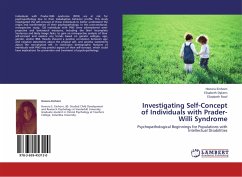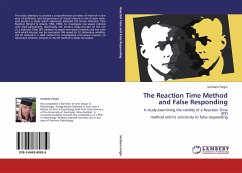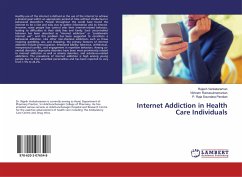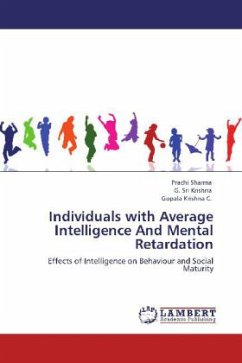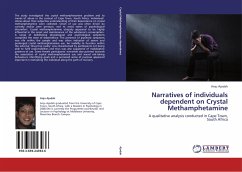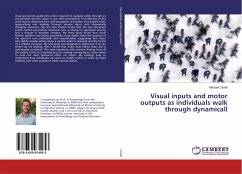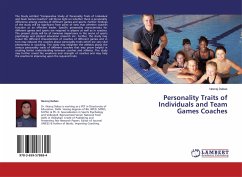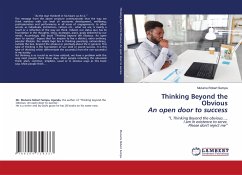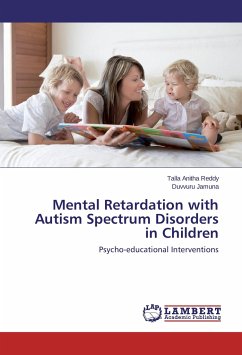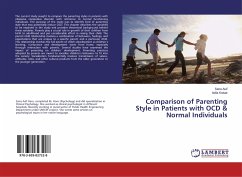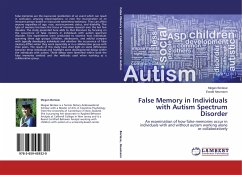
False Memory in Individuals with Autism Spectrum Disorder
An examination of how false memories occur in individuals with and without autism working alone or collaboratively
Versandkostenfrei!
Versandfertig in 6-10 Tagen
27,99 €
inkl. MwSt.

PAYBACK Punkte
14 °P sammeln!
False memories are the inaccurate recollection of an event which can result in confusion, amusing misconceptions, or even the incarceration of an innocent person based on inaccurate eyewitness testimony. They can affect anyone regardless of age, race, socio-economic status, and disability. This type of memory has been the focus of intensive research over the last few decades. The study presented here adds to that literature by focusing on the occurrence of false memory in individuals with autism spectrum disorder. Two experiments were conducted to examine how individuals spanning three age gro...
False memories are the inaccurate recollection of an event which can result in confusion, amusing misconceptions, or even the incarceration of an innocent person based on inaccurate eyewitness testimony. They can affect anyone regardless of age, race, socio-economic status, and disability. This type of memory has been the focus of intensive research over the last few decades. The study presented here adds to that literature by focusing on the occurrence of false memory in individuals with autism spectrum disorder. Two experiments were conducted to examine how individuals spanning three age groups (children, adolescents, and adults) compare with typically developing individuals and whether the occurrence of false memory differs when they work separately or in a collaborative group with their peers. The results of this study have shed light on some differences between these individuals and highlight some developmental delays within the individuals with autism. These delays were identified within both the false memories emitted and the methods used when working as a collaborative group.



